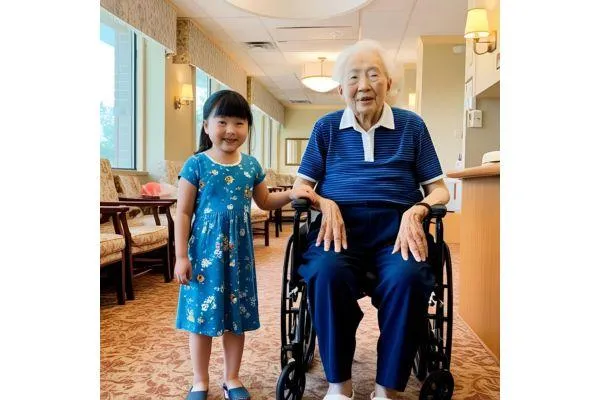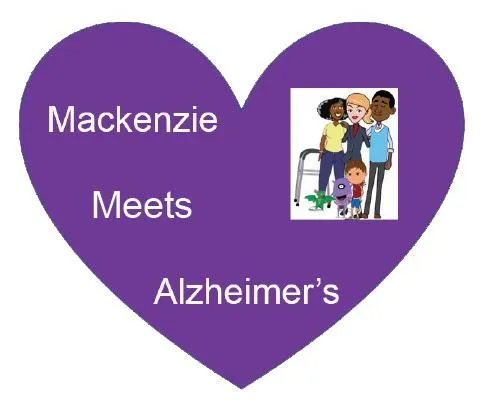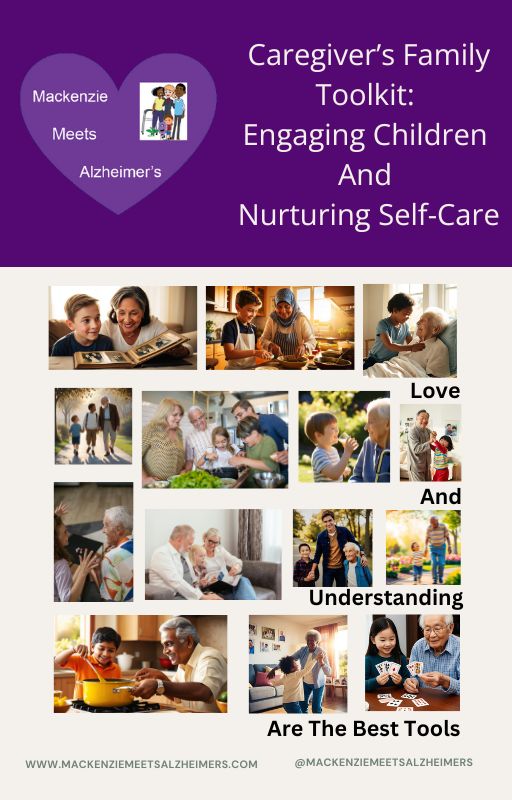
Love and Understanding: Guiding Children Through the Journey of Severe Alzheimer's Disease
How do you explain something as complex as Alzheimer's to your kids while managing your own emotions and responsibilities? This blog post will help you navigate these challenges with information, tips, and activities designed to make the journey a little easier.
Story
Emily was only eight years old when she noticed that her grandpa, who once told the most captivating stories about his adventures, began to repeat himself and sometimes forgot her name. On a sunny Saturday morning, Emily and her mom visited him at the care community. She held her mom’s hand tightly, feeling a mix of excitement and nervousness.
As they entered the room, Grandpa was sitting by the window, gazing at the garden. Emily ran up to him and gave him a big hug. “Hi, Grandpa! It’s me, Emily!” she exclaimed. He looked at her with a moment of confusion, but then his face softened into a warm smile.
“Hello, little one,” he said gently, though Emily noticed he didn’t call her by her name. She sat by his side, showing him the drawing she made—a picture of them in the garden, surrounded by colorful flowers.
“Do you remember when we planted flowers together last year, Grandpa?” Emily asked. He nodded slowly, though Emily wasn’t sure if he truly remembered.
As the morning went on, Emily’s mom explained that Grandpa’s memory was like a book with some pages missing. Emily thought about this as she watched him. She realized that even if some pages were gone, the stories they shared were still special.
Emily's mom realized that for future visits, she needed to teach her daughter to say, "Hi, I'm Emily. I'm your granddaughter. I remember when we planted flowers together last year." This helps her grandfather know from the get-go who she is, their relationship, and that they had shared time together.
We have created a PDF of information, tips, and activities to promote love and understanding during the severe stage of Alzheimer's disease. Download the free PDF below.

It's crucial for adults to understand severe stage Alzheimer’s disease so they can explain it to children in a way that helps them grasp the situation while maintaining their innocence and hope. Severe stage Alzheimer’s affects cognitive functions profoundly, leading to memory loss, personality changes, and significant daily challenges.
Our Severe Stage Alzheimer's Disease Video in our Mackenzie Meets Alzheimer's Awareness Program (MMAAP) is perfect for helping explain this stage to children, but here a few tips.
Explaining Severe Alzheimer’s to Children:
Use Simple Language: Break down the illness into understandable parts. Explain that the brain is like a computer, and sometimes it gets a virus. In this case, her grandpa’s "computer" isn't functioning properly, so he might forget important things like names, or how to do everyday tasks.
Encourage Questions: Allow children to express their thoughts and curiosities. Say, “Sometimes we don’t have all the answers right away, but asking questions is how we learn.”
Use Visual Aids: Drawings or videos about how the brain works before and after Alzheimer’s can make the condition more understandable. Our video, What is Alzheimer's Disease? in our MMAAP, uses images to explain what happens to the brain of someone who has Alzheimer's disease.
Incorporating Children into the Caregiving Process
Children can be surprisingly resilient and empathetic when included in caregiving. Educate your child about Alzheimer's in an age-appropriate manner to help them understand their grandparent's behavior. Encouraging them to participate in simple caregiving tasks strengthens family bonds and provides them with a sense of responsibility and empathy.
Activities to Foster Understanding and Compassion:
Memory Box: Encourage children to create a memory box filled with items that represent good times spent with their grandparent. Discuss each item together, reinforcing positive memories and the importance of holding on to those feelings.
Role Play: Use role play to help children express what they’ve learned and how they feel. It can be a therapeutic way for them to work through their emotions.
An Alzheimer's Walk: Participate in local Alzheimer’s awareness events as a family to support ongoing research and find community with others experiencing similar situations.
Download our PDF for more information, tips, and activities for the severe stage.
Concluding Thoughts:
Confronting severe Alzheimer's is undoubtedly challenging, but with the right tools and approaches, explaining this disease to children doesn't have to be an uphill battle. Equip yourself with knowledge, patience, and creative strategies to foster understanding and empathy in kids, and don’t forget to practice self-care along the way.
Ready to explore more about creating a nurturing environment for your child and your loved one who has Alzheimer's or any type of dementia? Consider purchasing our Mackenzie Meets Alzheimer's Awareness Program. Learn more here.

